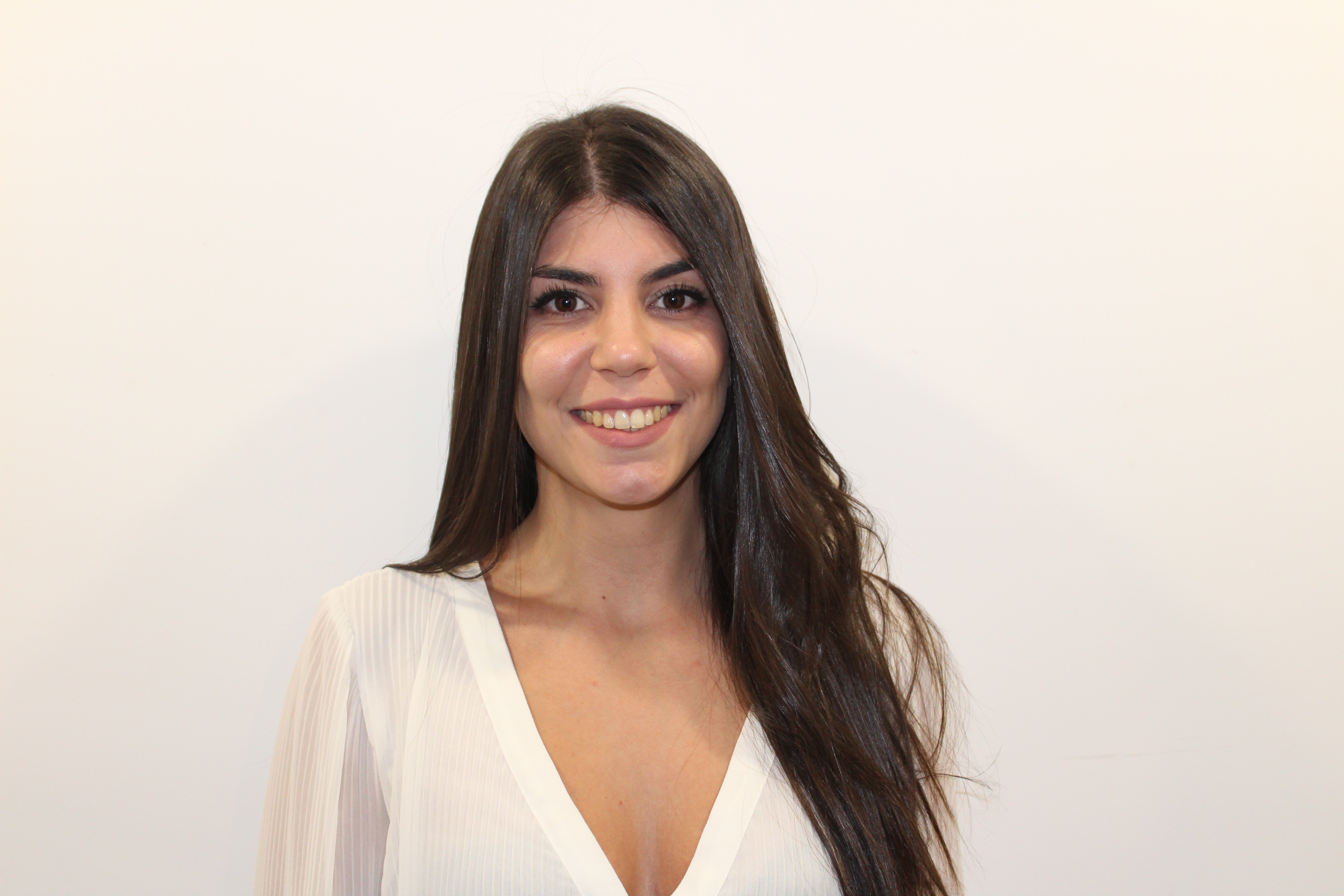Alba García defends her thesis at the ICMM: "The doctorate teaches you to persevere"

New Ph.D. defense at ICMM. Alba García Sanches defends her thesis this Friday, March 10th. Her work is entitled 'Development of Multifunctional Hybrid Catalysts for the production of solar fuels' and she has gone between the Materials Science Institute of Madrid, with Felipe Gándara, and IMDEA Energía, where she worked with Víctor A. de la Peña-O Shea.
"This doctoral thesis focuses on the design of new hybrid materials that can be used as photocatalysts in applications related to energy production", explains the future doctor. The scientist, with studies in chemistry, points out that in the current context "of continuous growth in energy demand and the consequent emissions of gases that cause the greenhouse effect" works like hers are necessary, as they are focused on "the search for alternative energy sources to fossil fuels. Among the alternatives, the production of fuels through the use of sunlight, or photocatalysis, is considered a promising option for which the use of photocatalysts that facilitate and give rise to said reactions are required," she defends in the summary of the thesis.
To respond to this problem, García bases her work "on the choice of a thiophene-based monomer, unit [3,2-b:2´3´-d]thiophene, selected for its photoactive properties of light absorption and transport charge, for the development of hybrid photocatalysts that have been used in the reactions for the production of H2 from water and in CO2 photoreduction. In addition, through different techniques, the mechanisms involved in these charge transfers were determined".
This, translated into a nonscientific speech, means that the research is based on the search for new materials to produce fuels with renewable sources: "in this case solar energy, so that they help certain reactions to occur, reactions aimed at minimizing the problem of the greenhouse effect and with the aim of improving the environment, such as the production of H2 from water and the transformation of CO2 into compounds that can be used".
García explains that she chose to work at IMDEA and ICMM because the latter has the Multifunctional and Supramolecular Materials Group, with so much experience in the synthesis of crystalline hybrid materials, MOFs, "so it was the perfect place to learn how to synthesize materials to achieve my thesis goal."
Once she has finished writing her thesis, the young woman explains what she has learned: "The doctorate teaches you to persevere and learn from everything," she says, and adds: "Even if things don't turn out as you expect, in the end after all, research has very good moments in which you get good results, but you also find many occasions in which you do not achieve the result you want or that you thought would come out, and you have to see the reason". In fact, she is satisfied with the work done: "Doing a doctorate, in general, gives you critical capacity with regard to situations and results, as well as helping you to work both in collaboration with people and independently."
García, who studied chemistry thanks to a teacher at her institute who transmitted his passion for science, chose to become a researcher out of pure curiosity: "I liked to know why things happen." Now, with her thesis finished, the work does not end: "At the moment I am working on something related to the equipment that I have used during my thesis," she says. There is a long way to go, and a reference to be inspired by: "Marie Curie has always been a role model for researchers."
-- Ángela R. Bonachera - Communication and Outreach Unit --
Instituto de Ciencia de Materiales de Madrid (ICMM)
Sor Juana Ines de la Cruz, 3
Cantoblanco, 28049
Madrid, España
Telephone: (+34) 91 334 90 00
Email: @email
Communication Office: @email

Acknowledge the Severo Ochoa Centres of Excellence program through Grant CEX2024-001445-S/ financiado por MICIU/AEI / 10.13039/501100011033

Contacto | Accesibilidad | Aviso legal | Política de Cookies | Protección de datos